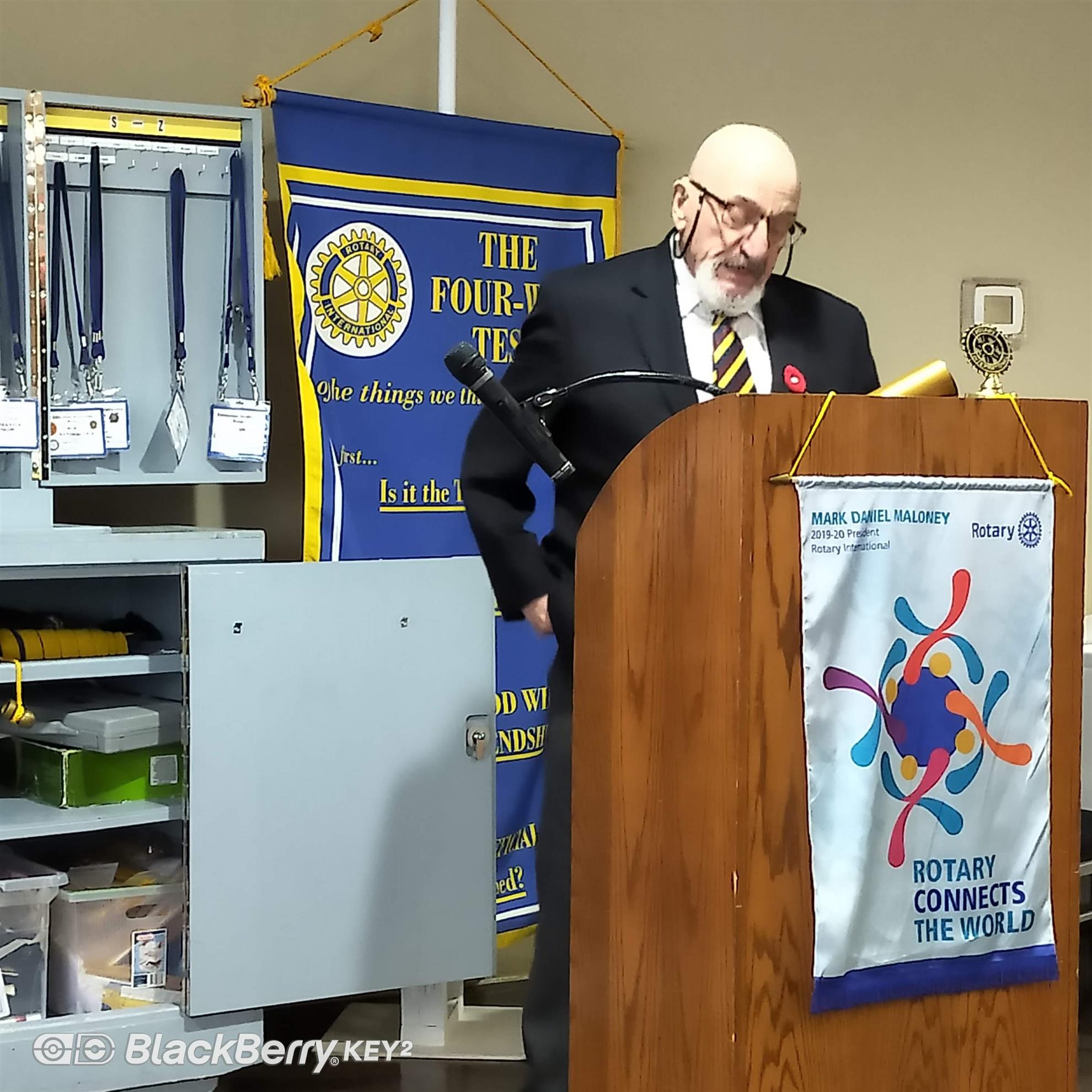This Tuesday we heard from Joe Schultz, a speaker from The Memory Project, on the topic of courage. The Memory Project is a voluntary speakers bureau that connects groups with military veterans or Canadian Forces members who are willing to share their stories of military service. Joe told us that he is an infantry veteran, but not a combat veteran. He served in the PPCLI (Princess Patricia Canadian Light Infantry) for thirty years, from 1959 to 1989. He served in Cypress, Germany and many other locations. He was trained in many different types of warfare and performed many different types of peace time services, such as riot control, security for royalty, interpreter, parachutist, intelligence gathering, jungle warfare training, rappelling from a helicopter and senior explosives instructor.
Joe said that one of the favorite topics for a vet to be asked to speak about is courage. There are many different types of courage- physical, social, moral, spiritual, emotional, intellectual and more. He said that courage and bravery are often confused. He gave the analogy that it takes bravery to grab the balls of a lion, but it takes courage to keep on squeezing. Joe said that he believes that courage can be taught. Proper training gives both physical and moral courage to do things that one would not normally consider such as parachuting, jumping into snake infested waters and trekking for days in bitter cold conditions. The teamwork involved in training also encourages you to do many things that you would not even consider doing on your own, if only from the fear of group mockery or humiliation. Things like parachuting, rappelling both forwards and backwards from a helicopter, winter survival training, wading through snake infested water, explosives training and many more. He also said that the experience gained also gives moral courage to do the right thing, as when he was once tasked with transporting the bodies of dead service members home in a respectful manner, and had to ask two senior officers to recuse themselves from duty as they had had too much to drink.

Joe also talked about some of his childhood experiences of having to flee on foot as a very small child across Poland to Germany during WWII. He remembers collecting coal along the railway tracks to be able to keep themselves warm. He later came to Canada in 1953 as a refugee with his family. He said that he had to endure many taunts as a child because he was considered to be German by his school mates. There was no such thing as anti-bullying in schools then and when he retaliated, he was disciplined. He said that discipline is necessary but it must also be fair. One discipline experience he will always remember happened in 1964 when he was eight minutes late for duty. He was sentenced to thirty days in the brig, and the first fourteen days were bread and water rations. He was never late for anything after that.
Joe said that the one thing he always makes time for now is remembrance parades. He said that over his thirty years in the infantry he has served with and trained many people who have given their lives in service to our country. They were all both brave and courageous. He also said that military service takes lives after serving as well, in the form of PTSD and suicide. We lost one hundred and fifty eight soldiers in Afghanistan and another seventy eight afterwards who have since committed suicide. He said that the remembrance parade that made the biggest impact on him is the one that takes place every day at eight pm at the Menin Gate, the east entrance to Ypres, Belgium, where they stop the traffic moving through the gate, observe silence and perform the last post and reveille to commemorate the many allied soldiers, with unmarked graves, who died in the battle of Ypres Salient during WW I. The people of Ypres have been performing this remembrance every day now for ninety-two years! He said that we should all remember that each person who lost their life as a result of conflict, both in battle or as collateral damage, was a unique person, who loved and was loved, and that each of them had unique value. He said there is no such thing as war heroes, only victims, so we need to keep on squeezing to ensure an end to conflict.
